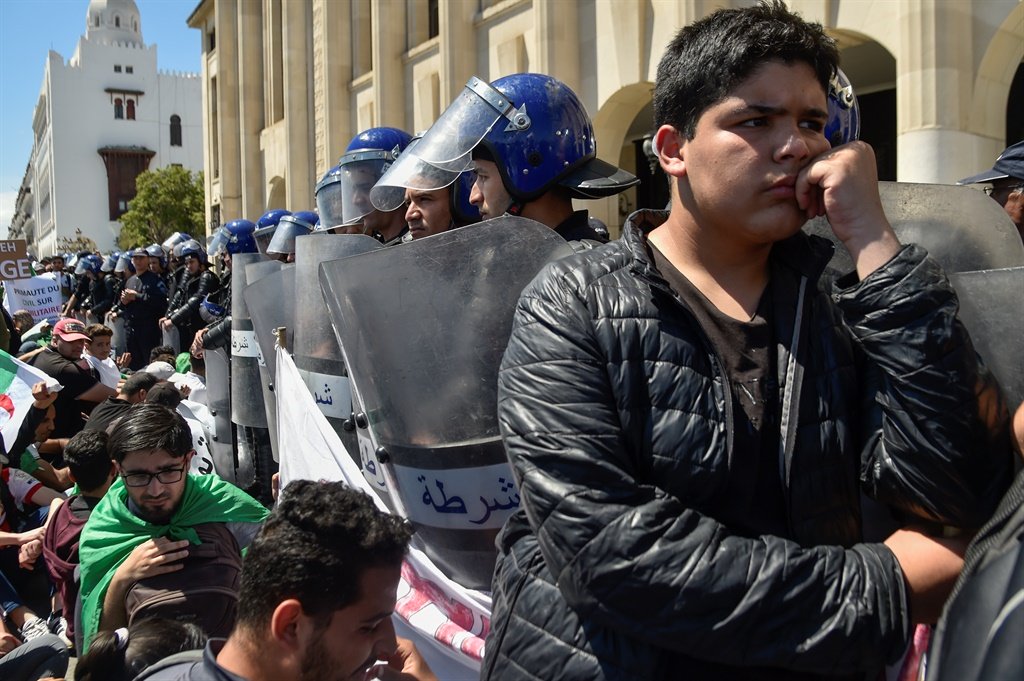

Algiers – Dozens of Algerians linked to the
country’s anti-government protest movement remain “forgotten” in
pre-trial detention during the coronavirus crisis, with little or no legal
support.
Zinedine Hanane, 32, was arrested on 1 March 2019,
in Algiers while returning from a demonstration, after two people from his
neighbourhood allegedly got into a car with him.
One of them, a TV repair man, said he found a
plasma television on the street after an appliance shop had been looted and
took it for spare parts. All three men were arrested and accused of vandalism.
The protest movement “and the justice system
have forgotten them,” Hanane’s mother Zakia said. “And with the
coronavirus, they are paying a high price for this – it’s a double whammy even
before judgment.”
Detainees like Hanane often aren’t considered part
of the political opposition, and many lawyers who provide support to the
anti-government protest movement – known as “Hirak” – will not
represent them.
Some are alleged to have been involved in
altercations, thefts and looting on the margins of the protests that broke out
in February 2019 against the rule of president Abdelaziz Bouteflika, who
resigned last year.
Some of those now detained came from outside the
capital Algiers, the epicentre of the movement, and their families frequently
struggle to find the money for lawyers.
Some have remained in jail while watching Hirak
protesters be freed or sentenced to terms no longer than time already served.
Zakia and other mothers of detainees have formed a
support group to share their hardships and help each other in their fight for
their children’s freedom.
Although the authorities say there have been no
cases of the novel coronavirus within the country’s penitentiaries, relatives’
anguish has increased with the pandemic and prison visits have been cancelled.
‘Pre-trial detention a powerful weapon’
“Pre-trial detention is a powerful weapon in
the hands of those who criminalise political, union and community activity – and
now, members of the Hirak,” said Kaddour Chouicha, a human rights activist
and former protest movement detainee from the northwestern city of Oran.
The justice ministry was unavailable for comment on
the exact number of people in pre-trial detention. Algerian authorities have
consistently avoided commenting on the matter.
Civil society NGOs are split on whether many of
those detained in connection with the demonstrations are prisoners of
conscience or not – but agree they should not be in preventive detention.
Hakim Addad, a former prisoner and activist with
civic group Youth Action Rally (RAJ), a key part of the protest movement, said
most Hirak lawyers have treated this group of prisoners as common-law
detainees.
That is despite the fact they have been jailed over
incidents linked to the demonstrations.
Some Hirak attorneys have refused to defend them,
citing “professional secrecy” to conceal the reasons for the
prisoners’ detention, said Lydia Lounaouci, a lawyer from the northeastern city
of Bejaia.
Yazid Hadou, a protester from the northwestern city
of Tlemcen, was arrested in October. Police accused him of fighting with a
municipal officer ahead of the presidential election in December.
The family has engaged a lawyer, and his brother
Hami is pushing for his release. Since Yazid’s arrest, their mother has died.
“She was sick and she didn’t react well to news
of his imprisonment,” explained Hami. “I don’t dare tell” Yazid,
he said, adding that his brother has a wife and young child.
‘Unacceptable’
Preventive detention had become the rule rather
than the exception even before the protest movement started, lawyers and human
rights activists say.
But the Hirak protests made this legal tactic more
visible.
Rights activists say that over a thousand people – both
those connected with the Hirak movement and others – are in prison awaiting
trial, despite recent presidential pardons.
RAJ activist Addad remembered a 23-year-old man he
had met in jail, whose only family member was a brother.
He “has been in pre-trial detention for 18
months because of a brawl. He doesn’t have the money to pay a lawyer,” he
said.
Some 20-30% of detainees in the capital’s El
Harrach prison are in pre-trial detention, Addad said.
“That’s unacceptable. Some spend months in
prison before being acquitted,” he added.
Those hit hardest by preventive detention, rights
activist Chouicha said, were the isolated and impoverished, locked “in an
unfair confrontation with the real face of repression”.
He recalled meeting a man in Oran prison who had
been awaiting trial for six years on drug-related allegations.
“They don’t know the mechanisms, or the people
to contact. They have no money. Their families don’t know who to turn to,”
he said.
